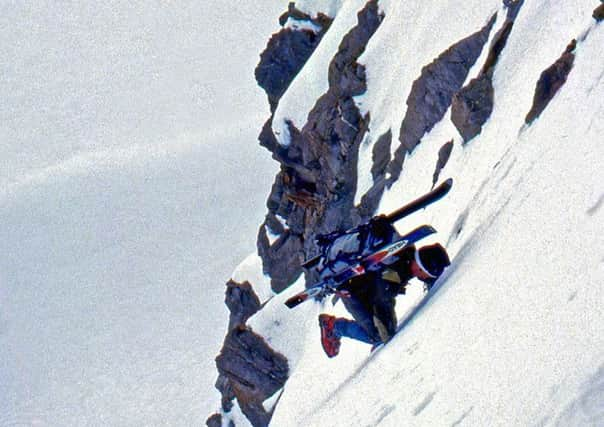Roger Cox: Adventures in the face of adversity offer lessons in how to live well


He went on to enjoy a successful career as a consultant radiologist at Salford Royal Hospital in Manchester, carefully planning out his days so that he didn’t have to walk any further than was absolutely necessary, and arranging to receive any medication he needed during his lunch breaks in order to save time. “None of this,” he writes, in his autobiography Don’t Look Down, “interfered with my ability to do my job, and I never took a day off due to illness.” Chisholm worked as a consultant for 28 years.
So far, so superhuman, but what makes him even more remarkable is that, in addition to holding down a highly demanding day job, he somehow also found the strength – both physical and mental – to keep on enjoying the outdoors.
Advertisement
Hide AdAdvertisement
Hide AdBefore his diagnosis Chisholm had been a climber and a sailor, and he was determined that his illness wouldn’t prevent him from continuing to spend time in the mountains and out on the water. After passing his medical exams he travelled to Nepal and hiked the high-altitude Annapurna Circuit – in January, the toughest time of year to do it, and travelling clockwise, the most difficult way round. In 1985 he completed an ambitious ten-day ski touring expedition in the Silvretta Alps, hampered by another bout of useless hand syndrome, and later in life, even as his strength and stamina started to fade, he still sailed to places as far-flung as St Kilda and the Lofoten Islands. “Sailing has always meant so much to me,” he writes. “After MS it meant even more. If I could no longer climb the mountains I wanted, at least I could sail the seas.”


Chisholm passed away earlier this year – not as a result of his MS, but, in a cruel twist of fate, because of a brain tumour, diagnosed in early 2017 after he started to lose the use of his left leg. Don’t Look Down was ghostwritten by David Robinson, formerly books editor of The Scotsman (and, full disclosure, somebody I’ve worked closely with for many years.) When the two first met to discuss the project, Robinson says, Chisholm was overwhelmed by despair. Gradually, though, the act of distilling a life into 177 pages proved therapeutic.
“I’d never been a ghostwriter before,” says Robinson, “but I’ve been a journalist for 40 years and in all that time this is probably the most emotionally satisfying project I’ve ever done.
“I can see that the book really helped Roger. He was suicidal at the start of it, he was depressed, he was angry, he was raging – and you can understand his rage. He’d had MS for 40 years, and then to have a brain tumour on top of that at a time when he was just planning to retire to spend time with his friends and family... it just seems unfair.
“So yes, he was bitter and that is completely understandable, but as we went through chapter by chapter, looking at his life, we went back to his childhood, his parents, Cambridge, his friendships... and as we looked back on all of those periods of his life and the things he’d done since, he got a sense that his life had really added up to something, and so his attitude changed.
“By August, Roger was moving away from suicide and he was very actively engaged in the book. He became proud of it, he talked about it as being his third child – I think it gave his life meaning and I think it gave his life focus.”
At various points in Don’t Look Down, Chisholm gives the impression of being the kind of person who likes to be in control, whether planning his next move on a climb, navigating a yacht through treacherous waters or in his work as a doctor. Was there a sense in which the book was a way of him winning back a degree of control over his life, in a situation where he felt he had none?
“Absolutely,” says Robinson, “that is what this is. It’s the equivalent in pages of plotting a course, looking back on the marks that he’d made. Maybe we don’t do that enough in our lives. I think it was good for him to find somebody who could help him put all that into words, and it was a privilege to do that.”
Advertisement
Hide AdAdvertisement
Hide AdCertainly by the final pages of Don’t Look Down, Chisholm seems to have found some sort of peace. “I may not be able to go into the wild places any more,” he writes, “but I will always have the memory of how much at home I felt there... So many memories. So much life. So much retrospective fondness for everyone I met in mine.”
Don’t Look Down, by Roger Chisholm is published by Scotland Street Press, £19.99. To watch a short film about Chisholm and his friend Howard Steen sailing around the Hebrides, visit https://vimeo.com/215021897